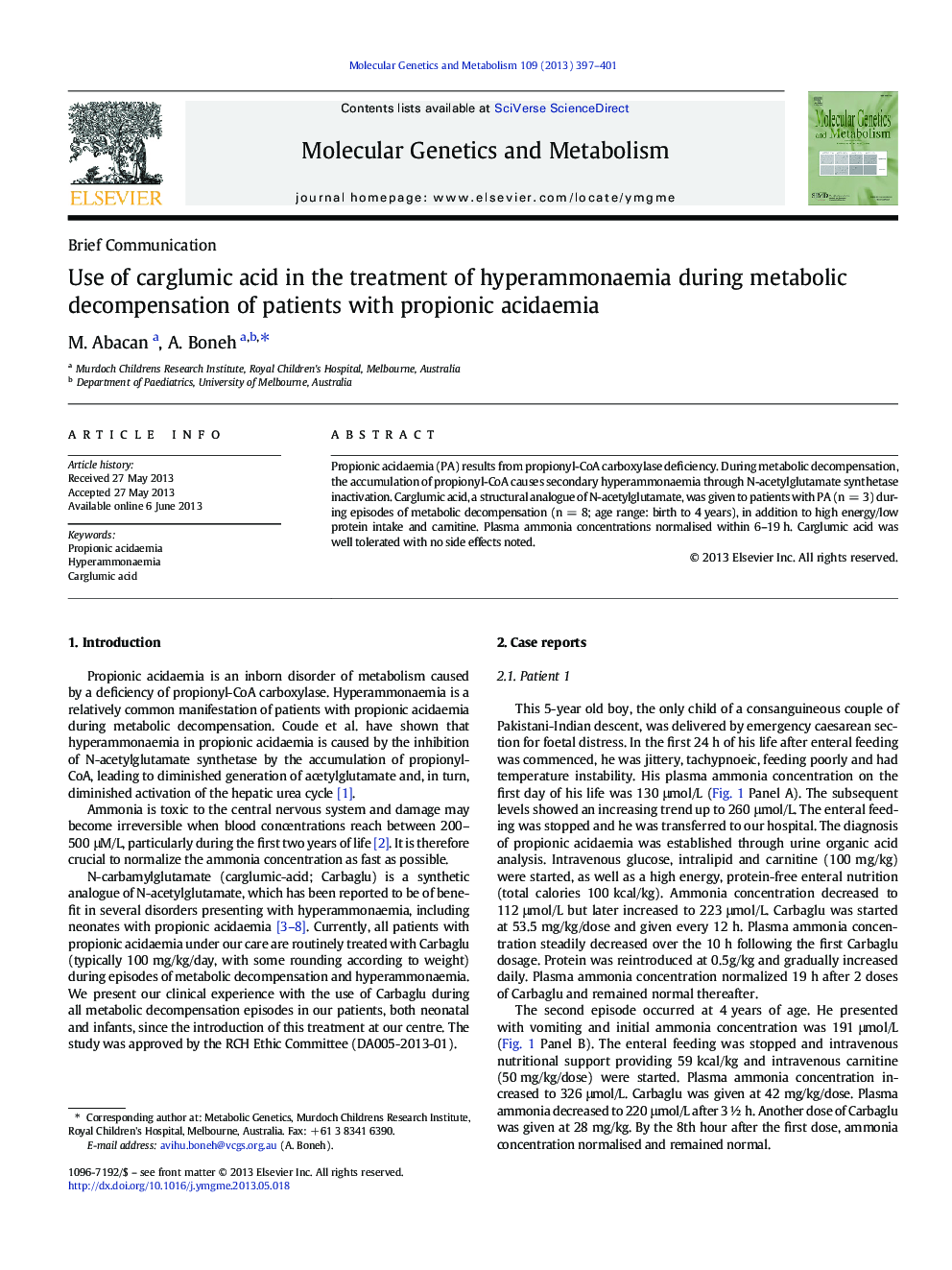| Article ID | Journal | Published Year | Pages | File Type |
|---|---|---|---|---|
| 10833667 | Molecular Genetics and Metabolism | 2013 | 5 Pages |
Abstract
Propionic acidaemia (PA) results from propionyl-CoA carboxylase deficiency. During metabolic decompensation, the accumulation of propionyl-CoA causes secondary hyperammonaemia through N-acetylglutamate synthetase inactivation. Carglumic acid, a structural analogue of N-acetylglutamate, was given to patients with PA (n = 3) during episodes of metabolic decompensation (n = 8; age range: birth to 4 years), in addition to high energy/low protein intake and carnitine. Plasma ammonia concentrations normalised within 6-19 h. Carglumic acid was well tolerated with no side effects noted.
Keywords
Related Topics
Life Sciences
Biochemistry, Genetics and Molecular Biology
Biochemistry
Authors
M. Abacan, A. Boneh,
